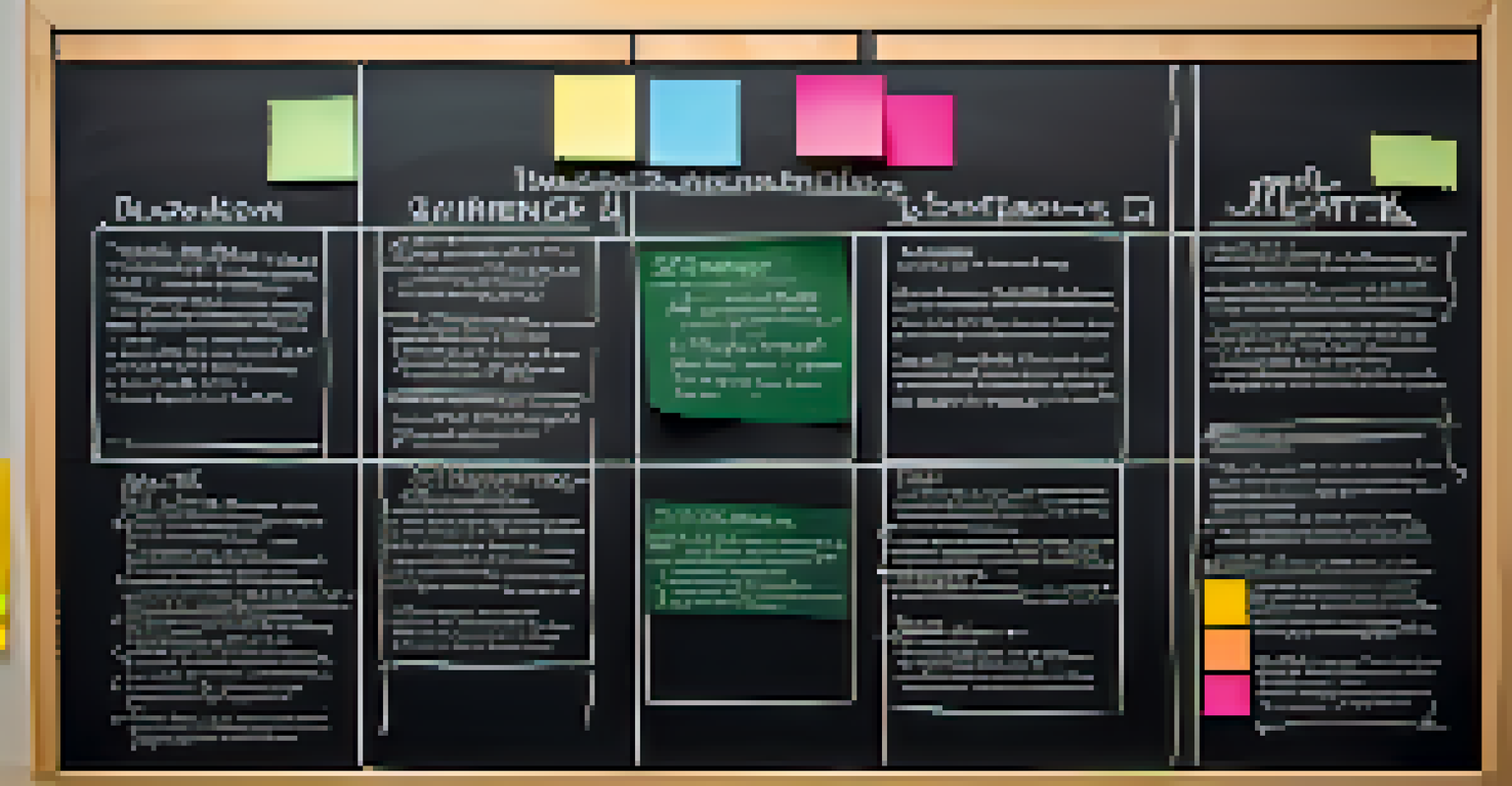Time Management Strategies for Self-Improvement

Understanding the Importance of Time Management
Time management is crucial for achieving personal and professional goals. It helps you prioritize tasks and allocate your time wisely, ensuring that you focus on what truly matters. By mastering time management, you can reduce stress and increase productivity, allowing for a more balanced life.
Time management is life management.
Consider the analogy of a jar filled with rocks, pebbles, and sand. If you fill the jar with sand first, there’s no room for the rocks. But if you start with the rocks, you can fit everything in. This illustrates how prioritizing important tasks can lead to a more fulfilling schedule.
Ultimately, effective time management empowers you to take control of your life. Instead of letting time slip away, you can channel your efforts toward activities that promote growth and self-improvement.
Setting SMART Goals for Effective Time Management
To make the most of your time, setting SMART goals is essential. SMART stands for Specific, Measurable, Achievable, Relevant, and Time-bound. This framework helps clarify your objectives and provides a clear roadmap for reaching them, making it easier to allocate your time effectively.

For example, instead of saying, 'I want to get fit,' a SMART goal would be, 'I will exercise for 30 minutes, five times a week, for the next three months.' This specificity not only motivates you but also helps you track your progress.
Master Time Management for Success
Effective time management reduces stress and boosts productivity, allowing you to focus on what truly matters in life.
By establishing SMART goals, you’re more likely to stay focused and organized. This structured approach allows you to prioritize your tasks and manage your time more effectively, leading to significant self-improvement.
Prioritizing Tasks with the Eisenhower Matrix
The Eisenhower Matrix is a powerful tool for prioritizing tasks based on urgency and importance. This method divides tasks into four quadrants: urgent and important, important but not urgent, urgent but not important, and neither urgent nor important. By categorizing your tasks, you can focus on what truly matters.
The key is not to prioritize what's on your schedule, but to schedule your priorities.
Imagine you have a deadline for a project due tomorrow (urgent and important), but you also have a chance to learn a new skill (important but not urgent). The matrix helps you decide where to invest your time effectively, allowing you to balance immediate needs with long-term growth.
Using the Eisenhower Matrix not only enhances your time management skills but also promotes self-improvement by encouraging you to focus on activities that align with your personal and professional goals.
Embracing the Pomodoro Technique for Focus
The Pomodoro Technique is a time management method that enhances focus and productivity. It involves working in short bursts of 25 minutes, followed by a 5-minute break. This approach helps maintain mental agility while reducing burnout, making tasks feel more manageable.
Think of it as sprinting during a race. You exert effort for a short period, then take a breather to recharge. This technique not only allows for sustained concentration but also creates a sense of urgency that can drive you to complete tasks more efficiently.
Set SMART Goals for Clarity
Establishing Specific, Measurable, Achievable, Relevant, and Time-bound goals provides a clear roadmap for managing your time effectively.
By incorporating the Pomodoro Technique into your routine, you’ll find that you can accomplish more in less time. This method nurtures your self-improvement journey by fostering better concentration and encouraging regular breaks for reflection and relaxation.
Eliminating Time Wasters for Increased Productivity
Identifying and eliminating time-wasting activities is vital for effective time management. Common culprits include excessive social media use, unproductive meetings, and multitasking. By recognizing these distractions, you can reclaim valuable time and redirect your efforts toward meaningful tasks.
Consider the metaphor of a leaky bucket: no matter how much water you pour in, it will never fill up if it keeps leaking. By plugging those leaks—such as limiting phone notifications—you can better utilize your time for self-improvement and personal growth.
Taking the time to evaluate how you spend your day can lead to significant changes. You’ll discover that by cutting out time wasters, you’ll have more room for activities that foster growth and contribute to your overall well-being.
Creating a Structured Daily Routine
A well-structured daily routine can greatly enhance your time management skills. By establishing consistent habits, you create a framework that guides your day, making it easier to allocate time to essential tasks. This structure can lead to increased productivity and a greater sense of accomplishment.
For instance, think of your routine as a recipe. Just like each ingredient plays a vital role in achieving the perfect dish, each part of your routine contributes to your overall success. When you follow it consistently, you’re more likely to see positive results.
Reflect for Continuous Improvement
Regular reflection on your time management practices fosters a growth mindset and enables you to adapt strategies for better outcomes.
By designing a daily routine that aligns with your goals, you pave the way for self-improvement. You can experiment with different schedules to find what works best for you, ultimately leading to a more fulfilling and productive life.
Reflection and Adjustment: Key to Continuous Improvement
Reflecting on your time management practices is essential for continuous improvement. Regularly assessing what works and what doesn’t allows you to make necessary adjustments, ensuring that your strategies remain effective. This habit fosters a growth mindset, encouraging you to strive for better outcomes.
Think of reflection as a mirror: it helps you see where you stand and identify areas for growth. By taking the time to analyze your successes and setbacks, you can learn valuable lessons that inform your future decisions.

Incorporating reflection into your routine not only enhances your time management skills but also contributes to your overall self-improvement journey. It cultivates a proactive approach, allowing you to adapt and thrive in an ever-changing environment.